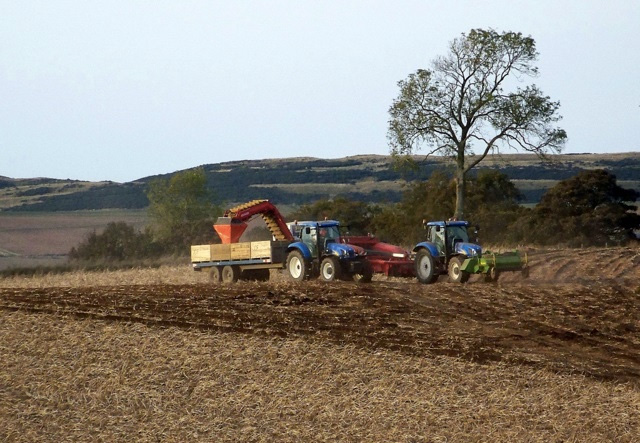
As Scotland enters the final stages in deciding how new support schemes will be delivered, NFU Scotland has met with local politicians and councillors to outline what is at stake in productive agricultural areas like Dumfries & Galloway.
Dumfries & Galloway is home to 41 percent of Scotland’s dairy cows (182,000); 19 percent of the country’s beef cows (85,000) and 15 percent of its ewe flock (381,000). Much of that activity is underpinned by direct support but with new CAP schemes still under discussion, the cost of getting it wrong could have huge implications for the economy of the region.
A significant reduction in support could trigger a scale back in production, with ramifications for the many businesses in the region reliant on a thriving agricultural industry.
Beef, dairy and sheep farmers from across the region met with local politicians at an event hosted by Dumfries & Galloway Regional Chairman, Andrew McCornick and family at Barnbackle Farm, Lochfoot, Dumfriesshire.
Speaking after the event, Andrew said: “Scottish Government is in the final stages of deciding how it will implement new Common Agricultural Policy (CAP) schemes for 2015 to 2019. Those decisions have huge implications, not just for the farming sector, but for the whole rural economy and their communities.
“Given the scale of livestock and dairy production here in Dumfries & Galloway, a good CAP deal will set up our region for the foreseeable future but a poor deal on future support will have ramifications for businesses, supply chains and local economies.
“In a worst case scenario, the region’s farmers could lose out on tens of millions in support over the next five years. That would undoubtedly have knock on effects for the many local businesses upstream and downstream who are reliant on farmers, putting jobs on the line.
“We hope that the politicians and councillors who attended today were impressed with the professionalism and commitment of the region’s farmers and will lend their political weight to a CAP implementation plan that drives stability and instils confidence in our primary producers. That is an approach that the whole local economy would benefit from.”
